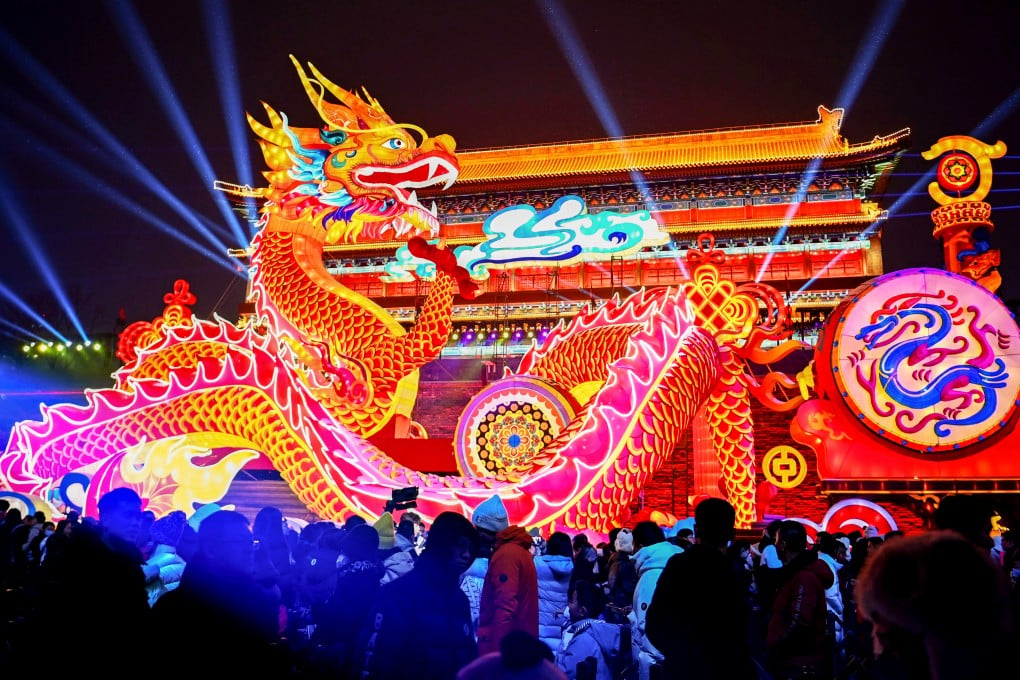Advertisement
The Year of the Loong? China’s dragons ‘are not’ the West’s ‘giant reptiles with wings’
- State media says Chinese and Western ideas about the mythical creatures are worlds apart
- Social media commenters spell out the difference for billionaire Elon Musk
Reading Time:2 minutes
Why you can trust SCMP
88

Chinese state media outlets have backed a push for the English word “dragon” to be replaced by its Mandarin transliteration loong in references to the Lunar New Year.
In a commentary published on Friday, state news agency Xinhua said loong was gaining currency over “dragon” among Chinese people because the two words had different, cultural-specific associations.
“Some culture mavens have been calling for a switch to loong, a word coined in the 19th century, to dissociate the Chinese dragon from the formidable monsters of Western myth,” said the commentary “The loong story: China’s zodiac animal is not the fire-breathing dragon”.
It argued that loong had positive connotations and Chinese people saw dragons as sacred and mythical creatures. However, in Western culture, dragons were “giant reptiles with wings”.
Advocates of the switch were quick to take Tesla founder Elon Musk to task on Saturday after he wished his fans on Weibo good fortune in the “Year of the Dragon”.
Along with their own good wishes, a few commenters suggested “Year of the Loong” was more appropriate.
Advertisement